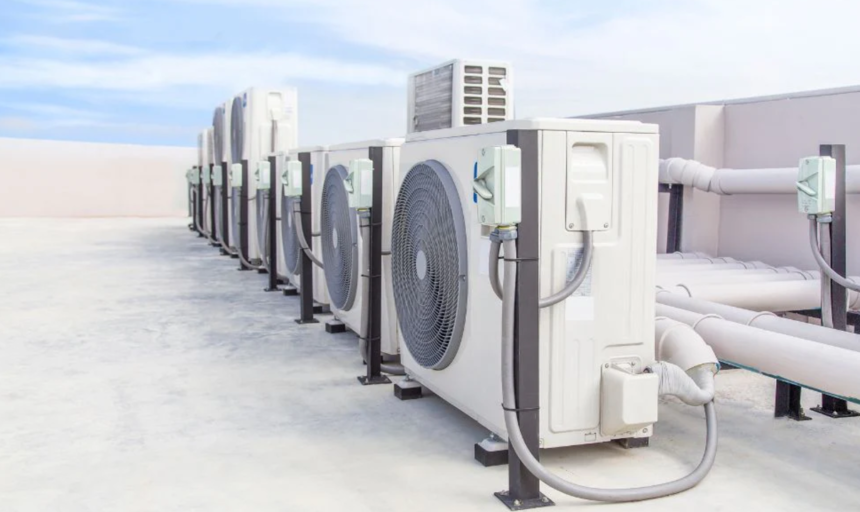HVAC (Heating, Ventilation, and Air Conditioning) systems are essential for maintaining a comfortable and healthy indoor environment. They regulate temperature, ensure proper air circulation, and contribute to energy efficiency. However, like any other system, HVAC units require regular upkeep to function effectively. Without proper maintenance, HVAC systems are more likely to break down, leading to discomfort and costly repairs. A key part of this upkeep, whether for HVAC or home water heating solutions in Santa Clara, CA, is understanding and addressing common issues that can affect the performance and lifespan of these systems. In this article, we’ll explore typical HVAC problems and outline preventative steps you can take to keep your system running smoothly.
Common HVAC Problems
1. Clogged Air Filters
Role of Air Filters:
Air filters trap dust, pollen, and other particles, keeping the air in your home clean and preventing debris from entering the HVAC system.
Consequences of Clogged Filters:
When air filters become clogged, airflow is restricted, causing the system to work harder. This not only reduces efficiency but also strains the system, leading to higher energy bills and increased wear and tear on components.
Maintenance Tips:
To keep air filters clean, check them monthly and replace them at least every 1-3 months, or as recommended by your HVAC manufacturer. Using high-quality filters can also improve air quality and prolong the system’s life.
2. Refrigerant Leaks
Function of Refrigerant:
Refrigerant is the substance that absorbs and releases heat, allowing your HVAC system to cool or heat the air. Proper refrigerant levels are crucial for the system’s operation.
Signs and Consequences of Leaks:
Common signs of refrigerant leaks include reduced cooling performance, hissing sounds, and increased energy costs. Low refrigerant levels strain the compressor and can lead to a complete system breakdown if not addressed.
Importance of Regular Inspections:
Regular HVAC inspections help detect refrigerant leaks early. If a leak is identified, a professional HVAC technician should repair the leak and recharge the refrigerant to maintain optimal system performance.
3. Thermostat Malfunctions
Role of Thermostats in HVAC Systems:
Thermostats regulate the temperature settings and control when the system turns on and off. Accurate thermostat function is essential for maintaining desired indoor temperatures and energy efficiency.
Common Problems and Causes:
Thermostats may malfunction due to low battery power, sensor issues, or wiring problems. Inaccurate readings or failure to turn the system on or off can lead to temperature fluctuations and wasted energy.
Maintenance Tips:
Regularly check the thermostat settings and change the batteries as needed. For advanced models, ensure firmware updates are installed, and consider recalibrating the thermostat occasionally to maintain accuracy.
4. Dirty Coils
Function of Evaporator and Condenser Coils:
Evaporator coils absorb heat from indoor air, while condenser coils release it outdoors. Clean coils are vital for the system’s efficiency.
Impact of Dirty Coils on Performance:
When coils are covered with dirt and debris, heat transfer is hindered, reducing system efficiency and causing the HVAC unit to overheat. This can lead to system shutdowns and increased energy costs.
Cleaning and Maintenance Guidelines:
Have coils inspected and cleaned at least once a year, ideally before the cooling or heating season begins. For DIY maintenance, gently clean accessible coils with a soft brush or vacuum, but leave deeper cleaning to professionals.
5. Blocked Drains
Role of Condensate Drain Lines:
Drain lines carry away excess moisture from the HVAC system to prevent water buildup inside the unit.
Consequences of Blocked Drains:
Blocked drain lines can cause water to back up, leading to leaks, water damage, and potential mold growth.
Prevention and Cleaning Tips:
Regularly inspect and clean the condensate drain lines to prevent blockages. Pouring a mixture of water and vinegar into the drain line can help dissolve minor blockages, but professional help may be required for severe clogs.
6. Fan Issues
Role of Fans in HVAC Systems:
Fans move air through the HVAC system, distributing conditioned air throughout the home. They play a critical role in maintaining air circulation and system efficiency.
Common Fan Problems and Causes:
Fan issues can stem from motor malfunctions, bent blades, or worn-out belts. Such problems can disrupt airflow, causing the system to overheat or shut down.
Maintenance and Repair Tips:
Regularly check for strange noises, inspect belts for signs of wear, and lubricate fan motors if needed. Replacing worn belts or tightening loose components can prevent more serious fan malfunctions.
7. Electrical Problems
Electrical Components in HVAC Systems:
HVAC systems rely on a series of electrical connections and circuits to function. These include wiring, capacitors, and relays that control the unit’s operation.
Risks of Electrical Issues:
Electrical problems can lead to system failure, short-circuiting, or even fire hazards. Warning signs include frequent breaker trips, burning smells, and irregular system performance.
Preventing Electrical Problems:
To prevent electrical issues, inspect the system’s wiring regularly. Tighten any loose connections, and if you notice signs of damage, consult an HVAC professional to perform necessary repairs.
Preventing HVAC Problems
Regular Maintenance
A proactive approach to maintenance can save you from expensive repairs and unexpected breakdowns. Consider these key maintenance steps:
- Schedule Inspections and Tune-Ups: Arrange for professional HVAC inspections at least once a year.
- Clean or Replace Air Filters: Check filters monthly and replace them as necessary.
- Inspect for Refrigerant Leaks: Have a technician inspect and recharge refrigerant levels if needed.
- Clean Coils and Drain Lines: Regularly check for debris buildup and clean coils and drain lines.
- Lubricate Fan Motors: Proper lubrication can reduce friction and extend the fan’s lifespan.
- Inspect Electrical Components: Check for damaged wiring and loose connections to avoid potential hazards.
Professional HVAC Services
Hiring a professional HVAC technician offers added peace of mind and ensures your system is maintained properly. Many HVAC companies offer preventative maintenance plans to keep your system running efficiently year-round. Additionally, for urgent issues, professional assistance is essential to avoid further damage.
Conclusion
In summary, HVAC systems are vital for indoor comfort, but they require regular care to function effectively. By understanding and addressing common HVAC problems—like clogged filters, refrigerant leaks, and dirty coils—you can keep your system in top condition. Regular maintenance not only extends the lifespan of your HVAC unit but also saves you money by reducing energy waste.
Don’t wait for problems to arise! Take a proactive approach to HVAC care, and if you need guidance, contact a local HVAC company for expert assistance. Preventative maintenance and timely repairs can keep your HVAC system running efficiently, ensuring a comfortable and safe home environment all year round.














